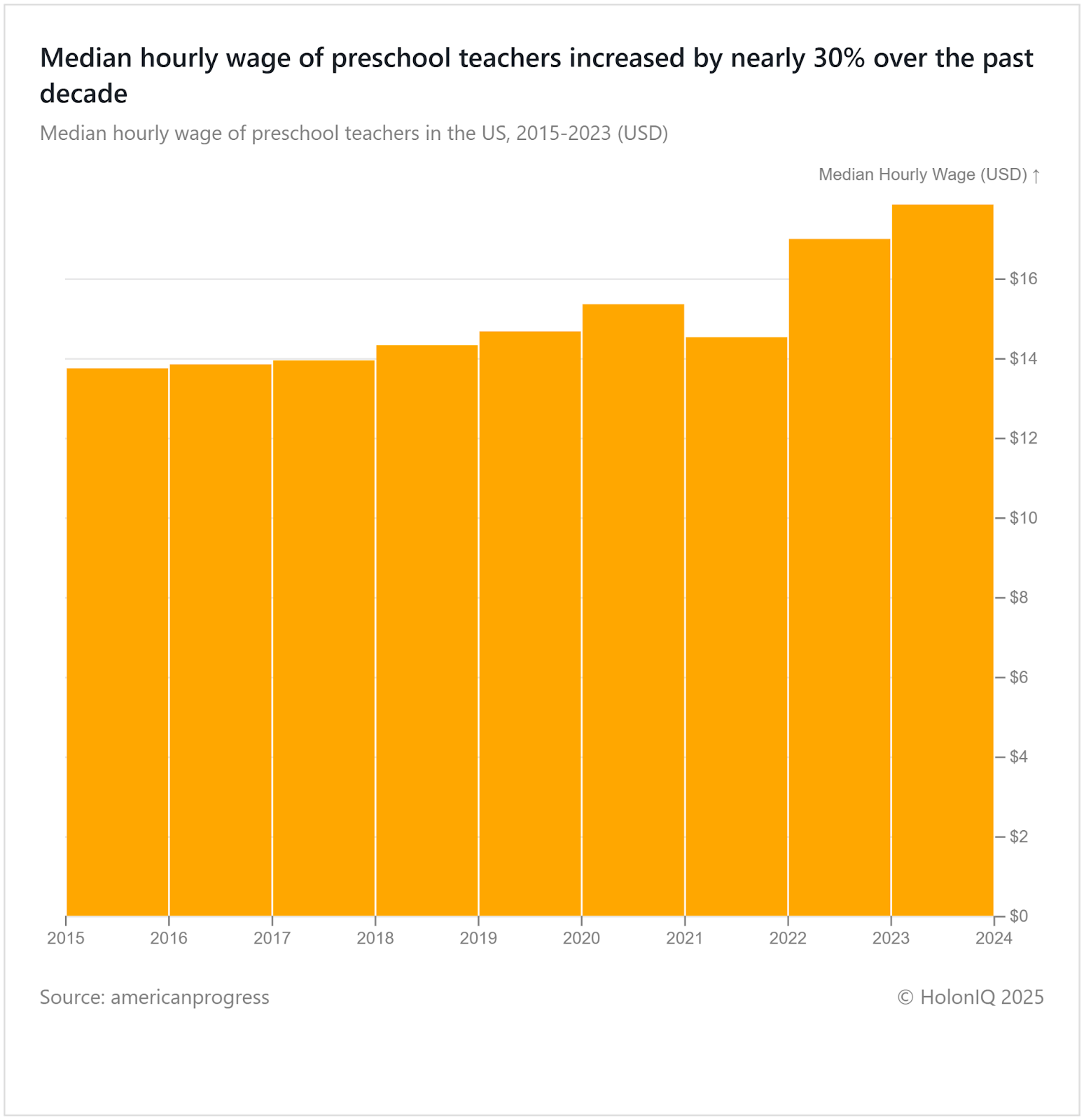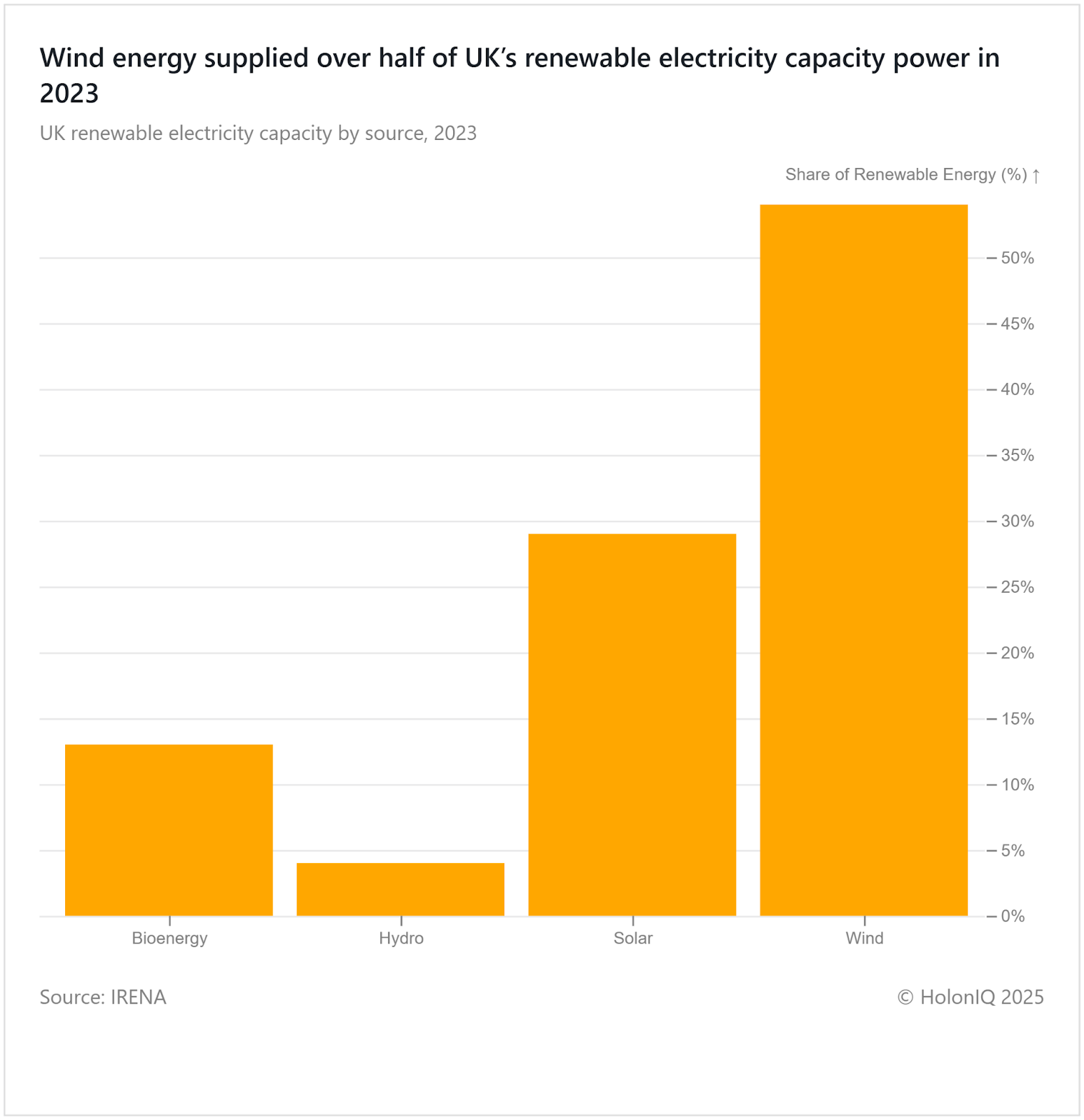👶 Preschool Teacher Wages Up 30%. Wind Energy Leads UK Renewables. Global Space Economy Valued at $600B.
Chart of the Day #448 Looks at US Preschool Teachers’ Wages, UK Renewable Electricity Capacity, and the Global Space Economy.
Privet 👋
Clemson and MIT partner up to enhance the battery workforce in hopes of aligning with Industry standards. $7B investment ignites advanced manufacturing revolution in US chips. Solar-powered futures are training rural youth for green jobs.
Coursera partnered with OpenAI to integrate its learning capabilities into ChatGPT apps. Adobe Pioneers Africa's First Express Bootcamp. New Zealand Government overhauls attendance services to combat chronic school absenteeism nationwide.
Today's Topics
👶 Preschool. Preschool teachers’ wages increased by nearly 30%
🍃 Green Skills. Wind provided over half of the UK’s renewable electricity capacity
🏭 Advanced Manufacturing. Rising investment pushes space economy past $600B
Thanks for reading!
Not a subscriber yet?
👶 Preschool Teachers’ Wages Increased by Nearly 30%

Despite a nearly 30% rise in median hourly wages over the past decade, preschool teachers continue to earn below-average pay, especially compared to school teachers in some states in the US. Meanwhile, early childhood education fees for parents have surged, widening the pay gap and leaving preschool educators underpaid. Their role demands not only academic instruction but also significant caregiving responsibilities. This imbalance between effort and reward has driven many to leave the profession, potentially worsening teacher shortages in early education.
🍃 Wind Provided Over Half of the UK’s Renewable Electricity Capacity

In 2023, wind energy supplied over half of the UK's renewable electricity capacity. However, globally, solar energy is now the leading renewable source. Analysts project that solar will account for approximately 80% of all new renewable capacity added globally between 2025 and 2030. The workforce for both wind and solar energy is predominantly engaged in installation, with minimal personnel required for maintenance. For most residential solar systems, natural rainfall is sufficient to remove dust, pollen, and debris. Additionally, advancements in technology have led to the development of self-cleaning robots for solar panels, enhancing efficiency and reducing maintenance needs. These innovations make solar energy more attractive to individuals and businesses considering installation.
🏭 Rising Investment Pushes Space Economy Past $600B

The global space economy reached $600B in 2024, with commercial products and services dominating at $343B (57%). Private space firms like SpaceX and Blue Origin revolutionized launch affordability and reusability, while emerging economies surged forward. India's space sector targets $44B by 2033, fueled by ISRO's Gaganyaan. This highlights the growing interest in space exploration in emerging economies, alongside countries like the US that continue to lead in investment in space exploration.
Like getting this newsletter? Request a demo for unlimited access to over one million charts
Thank you for reading. Have a great week ahead!
Have some feedback or want to sponsor this newsletter? Let us know at qs.com.
